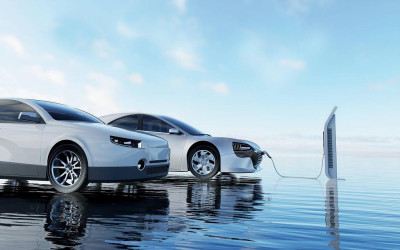來源: 鈦媒體APP 發表時間:2024-01-22 16:25:32 熱度:26
原標題:Chinese Automakers Flock to Capitalize on Thailand’s Next EV Incentive Package

Credit: CFP
BEIJING, January 22 (TMTPOST)—Great Wall Motor (GWM) has signed a memorandum of understanding (MoU) with the Thailand Excise Department, under which the Baoding-headqartered automaker will enjoy subsidies in the Southeastern Asian country.
GMW is among the first batch of Chinese companies to sign a MoU regarding the new EV 3.5 incentive package in Thailand. Changan Auto and SAIC Motor-CP, SAIC Motor Corporation's joint venture in Thailand, have also signed similar deals in Thailand.
The second phase of the electric vehicle (EV) subsidy package, known as the EV 3.5, is designed to promote EV industry's continuous growth and to facilitate investment opportunities in EV manufacturing in Thailand for new players from 2024 through 2027.
The package aims to support investment covering the entire EV industry ecosystem. As part of this new package, the Thai government will provide subsidies up to100,000 Thai Baht (about US$ 2,810) for the purchase of an electric car based on the vehicle types and battery capacities. “Those companies applying to this package will be contingent on the condition of EV production offset domestically for Completely Built-Up Units (CBUs) imported at 1:2 ratio by 2026 and 1:3 by 2027, according to Thailand Board of Investment (BOI),” according to the official website of the ministry.
In the first phase of the EV incentive program or EV 3 that started from 2022, a total of 15 companies have participated, including electric passenger cars, electric pickup trucks, and electric motorcycles, according to BOI.
In addition, BOI has extended the period for EV registration under EV 3 package from December 31, 2023, to January 31, 2024 in order to enable consumers planning to purchase EVs at the Thailand International Motor Expo to complete the registration process.
An insider well-versed in Thailand's new energy vehicle market noted that when there was only the "EV3.0" policy that came in force from 2024, only vehicles produced in Thailand would be eligible for subsidies. Therefore, some enterprises strategically established their production capacities in Thailand. However, with the introduction of the new policy, imported models are now also entitled to subsidies during 2024 and 2025. This shift has reduced the advantage gained by those who had previously built factories in Thailand.
The insider pointed out, "Imported models present a broader range of choices, and production costs in Thailand are higher than those in China."
SAIC Motor and GWM are among the first companies to introduce new energy models to the Thai market. In 2019, SAIC Motor-CP launched its first electric vehicle, the MG ZS EV, in Thailand. At the end of 2021, GWM rolled out the pure electric model Ora Good Cat to Thailand. Lured by the "EV3.0" policy, BYD and NIO made a foray into the Thai market in the second half of 2022.
From 2021 to 2023, the sales of pure electric vehicles in Thailand amounted to 1,900, 9,700, and 76,000 units, respectively. In 2023, among the top ten pure electric vehicles sold in Thailand, only Tesla's Model Y and Model 3 were non-Chinese brands. BYD emerged as the frontrunner in the Thai market, with sales of its Atto3, Dolphin, and Sea Lion models constituting approximately 40% of the market, as indicated by data from AutolifeThailand.
According to data from the China Association of Automobile Manufacturers (CAAM), China's auto sales surpassed 30 million units for the first time in 2023, driven by robust imports. After exceeding two million units in 2021 and three million units in 2022, auto exports hit 4.91 million units in 2023, representing a remarkable year-on-year increase of 57.9%. In 2023, a quarter of the new energy vehicles were exported, with Europe and Southeast Asia emerging as the major destinations.
After the European Union launched an anti-subsidy inquiry into Chinese-manufactured electric vehicles in October 2023, the prospects for Chinese auto companies in the European market have become more uncertain. Consequently, Southeast Asia, with Thailand as a focal point, has become a more closely watched region.
Southeast Asia has traditionally been a market for Japanese automakers. An employee in charge of overseas business of Changan Auto told Caixin that Chinese automakers will scramble to get a piece of action in the Thai market in 2024, with the strategic goal of capturing a market share from Japanese counterparts.
BOI, in a written reply to Caixin, said that Thailand welcomes investment from countries worldwide. It aims to become the largest auto production base in the region and it also supports the transition to new technologies for manufacturers of internal combustion engine vehicles such as Japanese automakers.
標題:Chinese Automakers Flock to Capitalize on Thailand’s Next EV Incentive Package
地址:https://www.vogueseek.com/post/46305.html
鄭重聲明:本文版權歸原作者所有,轉載文章僅為傳播信息之目的,不構成任何投資建議,如有侵權行為,請第一時間聯絡我們修改或刪除,多謝。
上一篇 : 以珍貴之禮,呈異彩時光
下一篇 : 新年到這“裏”,沉浸式探索多元潮流天地
